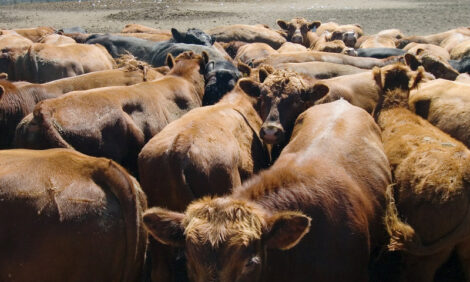



R-CALF Praise US Livestock Marketing Fairness Act
US – R-CALF USA has praised a group of senators who introduced the Livestock Marketing Fairness Act this week - an act designed to stop years of unfair abuse of the Packer and Stockyards Act of 1921 (PSA).R-Calf claimed that the act has been used by the multinational meatpackers to manipulate the markets in a way that disadvantages independent US cattle producers.
“Our members are farmers and ranchers who raise and sell cattle, and they have communicated to us in no uncertain terms that Congress must update the antiquated rules that define our U.S. cattle market to ensure the future success of their US cattle industry,” said R-CALF USA Marketing Committee Chair Dennis Thornsberry.
“R-CALF’s priorities reflect our members’ understanding that the US cattle industry is the last frontier for the concentrated meatpacking industry, as it is the only major livestock sector not vertically integrated from birth to plate. U.S. cattle producers seek to restore market competition by preventing concentrated meatpackers from exerting economic control over their industry, an action that leads to vertical integration and industry contraction.”
The ongoing contraction of U.S. livestock industries is well advanced as evidenced by trends documented by the US Department of Agriculture (USDA) from 1980 to 2005:
- US sheep and lamb operations declined from 120,000 to 68,000.
- US hog and pig operations declined from 667,000 to 67,000.
- US cattle operations declined from 1.6 million to 983,000.
“Unless Congress takes aggressive steps to restore the competitiveness of the US cattle industry by passing the Livestock Marketing Fairness Act, the contraction of the U.S. cattle industry will accelerate,” Thornsberry warned.
According to Johnson, this particular legislation would “put ranchers and farmers on equal footing with packer-owned herds by amending the PSA to end certain anti-competitive forward marketing contracts and ensure that ranchers have full access to the marketplace. A growing number of large packing operations own their own livestock or control them through forward contracting agreements. This allows these firms to buy from themselves when prices are high and buy from others when prices are low. In recent years, the meat packing industry has become increasingly concentrated with only a handful of firms controlling a majority of the domestic cattle and hog slaughter. The legislation is aimed at improving the stability and openness of forward contracting to provide ranchers and farmers with more options to sell their animals. The legislation allows ranchers and farmers to continue choosing the best methods for selling their animals.”
The bill would:
- Require that forward contracts for livestock (cattle, hogs and lambs) be traded in public markets where buyers and sellers can witness bids as well as make their own offers. This ensures the market is open to multiple offers;
- Require marketing agreements to have a firm base price derived from an external source. This ensures that local contract prices are not subject to manipulation by packer owned herds;
- Exempt producer owned cooperatives, packers with low volumes and packers who own only one processing plant. This exemption targets the source of price manipulation and ensures that the business practices of small family-owned processors are not impacted by the law;
- Ensure that trading is done in quantities that provide market access for both small and large livestock producers.
“We want to encourage each and every R-CALF member to contact their Senators to ask that they support this important bill, which ultimately will benefit communities all across Rural America,” Thornsberry said. “We cannot sit idly by without taking action to prevent our industry from becoming vertically integrated just like the hog and poultry industries have. If we choose to do nothing, future generations simply won’t have the option to carry on a strong ranching heritage and pretty soon, the result will be that we’re importing inferior beef from who knows where. We are going to have to fight hard to keep the US cattle industry strong for our children and their children.”
TheCattleSite News Desk


